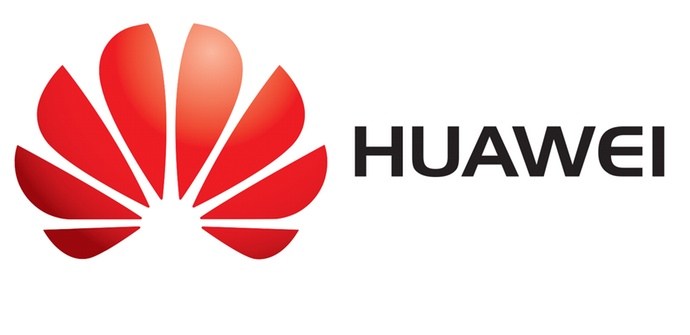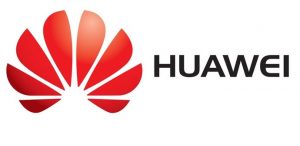Telecom
Huawei Introduces Key Architecture Index to Drive 5G Acceleration

Huawei has held an online IP Gala conference with its industry partners to introduce the Key Architecture Index (KAI) and share its applications.

This was part of the recent AfricaCom event with the theme “Leading intelligent IP networks, accelerating intelligent connectivity.”
In the carrier environment, the IP network enables fixed-mobile convergence, network evolution and the shift towards multi-services and the cloud era.
At the moment, a challenge facing most IP (internet protocol) networks is unnecessary complexity, due to a lack of IP architecture standardisation.
Most networks were built without adequate foresight, and next-generation networks, be they 3G, 4G or 5G, were built on top of existing networks.
This created network complexities around lack of visibility, management and control.
“We have to forever simplify our networks while moving to intelligent self-driving autonomous networks,” said Samuel Chen, director of Huawei Southern Africa Marketing and Solution Sales Department at the conference.
KAI architecture specifically addresses complexity challenges, enabling future-ready networks with easy integration, visibility, management and control, by measuring five dimensions of the transport network.
The KAI model indexes are Congestion Free, Scalability, Simplification, Always-on and Intelligence. Each dimension is evaluated across the optical, IP and the manager/controller/analyzer layer.
“The KAI model helps measure the results at an acceptable level across all of our offering portfolio so that we can realise a cloud-native based approach to monitoring the architecture,” said Hugh Ujhazy, Vice President, IOT and Telecom at IDC.
Zoltan Miklos, general manager of Network Planning at MTN South Africa delivered a presentation at the conference, outlining the Best Experience Congestion-Free IP Transmission Network, which would be the direct result of following an architectural model. He emphasised that it was critical to build networks with customer experience in mind.
“User experience is not only related to the wireless network, but to all aspects that form part of the service chain – from the customer to the core of the network,” he said.
Miklos said MTN was working hard to improve network architecture and was achieving excellent packet-lose rates of less than 10-4 across its entire network. The continuous P3 best-in-test achievements MTN has obtained were testimony to this, he said.
A white paper titled Transport Network Architecture Index in 5G and Cloud Era published by industrial intelligence company IDC this year has encouraged many operators across the world to move their network towards the KAI index model, looking to future-proof their network architecture.
Tony Hu, Huawei vice president of Data Communication Product Line said that a step-by-step approach was the right way for customers to embrace this evolution onto the KAI architectural model.
“We need to think not just as box layers. We need to think about the system layers, the architecture layers,” said Hu. “We need to rethink how services will be running on future IP networks and how to evolve our current networks for the future.”
He said IP networks could evolve by evaluating the current network against the five KAI dimensions. The KAI score obtained could then help the carrier to define the target network and the necessary corrective steps to be taken to get there.
The KAI model measures a network’s five dimension as follows: Congestion Free: Fiberization Ratio, 10G/25G to Site, Convergence Ratio, Network Slicing.
Simplified: SRv6/EVPN, Precise Clock Sync (G.8275.1).
Scalable: IP Capacity, Fixed + Mobile + Enterprise Network Convergence, Control & User Plane Separation (BNG).
Always On: Topology – Ring & Mesh, Network & Service Decoupling, Protection – IP FRR/TI-LFA, IP + Optical Synergy.
Intelligent: Auto Provisioning, Visualization on GIS & Logical Topology, Trouble Recovery(mins level), Predictive & Proactive Maintenance , Full Stack AI.
Ujhazy said inadequate levels of coverage or performance led customers to change providers. By contrast, network excellence led to improved customer experience, which would then enhance the provider’s success in the market.
“In recent years, the transport network has become the deciding factor in the quality of customer experience,” he added.
Telecom
Suspected Lakurawa Terrorists Kill 3 Telcoms Workers in Kebbi

Terrorists belonging to Lakurawa group have reportedly killed three staff of a leading telecommunication firm.

The insurgents were said to have invaded a construction site at Gumki village in Arewa Local Government Area of Kebbi State.
The bandits reportedly attacked a construction site at Gumki village in Arewa Local Government Area of Kebbi State when their victims were installing a surveillance mast for the Nigeria Immigration Service and killed them and one other person who is yet to be identified.
There was a conflicting report of which organization the victims belonged as the police said three of the deceased were Airtel staff and the residents identified them to be Immigration staff.
A staff of Sir Yahaya Specialist Hospital however corroborated the villagers, saying the three victims brought to the hospital were Immigration staff.
But SP Nafiu Abubakar, police spokesperson, said four persons lost their lives, one indigene and three staff of Airtel.
He said from the report the police got, Bello M Sani, state Commissioner of Police, alongside with CIS Muhammad Bashir, Comptroller, Nigeria Immigration Service, Kebbi State Command, Lawali mobilized their men to the scene to evacuate the corpses to Sir Yahaya Memorial Hospital in Birnin Kebbi.
He said his CP has deployed additional tactical teams to the area and charged them to decisively deal with the suspected bandits operating in the area.
He said the CP also had meeting with people in the area and appealed to them to always assist the police and other security agencies with relevant information for their prompt response.
Telecom
Nigeria Has World’s Most Affordable Data Costs – GSMA

Nigeria has an average data cost of $0.38 per gigabyte, making her the most affordable countries globally and one of the cheapest in Africa for mobile data services.

United States averages $6 per gigabyte and South Africa with $1.77 per gigabyte rank the highest globally and in Africa respectively.
According to the GSMA, Nigerian data costs, as a percentage of Gross National Income (GNI) per capita, are among the lowest across Africa.
The reports by the body lends weight to telecom operators advocacy for tariff adjustments to address economic pressures threatening the sector’s sustainability.
The GSMA report, titled “The Role of Mobile Technology in Driving the Digital Economy in Nigeria,” highlighted Nigeria’s competitive data pricing, which is significantly lower than other African nations, such as Kenya ($0.59 per gigabyte), Ethiopia ($0.68 per gigabyte), and South Africa ($1.77 per gigabyte).
By contrast, the United States averages $6 per gigabyte, underscoring Nigeria’s advantage in offering cost-effective connectivity.
The cost of mobile data in Africa varies greatly by country and region.
Data costs can refer to the cost of mobile data or the cost of acquiring, maintaining, and using business data.
In 2023, the average cost of 1 GB of mobile data in Sub-Saharan Africa was $3.31, while in Northern Africa it was $0.86.
Telecommunications operators in Nigeria have been requesting some policy changes as well as tariff rebalancing to enable them deliver support to the Government’s digital economy objectives.
They have called for the simplification and improvement of the Right of Way (RoW) charging and administration process, harmonised across the country
According to them, all government authorities (at national and sub-national levels) should apply the national maximum RoW fee of N145 per/LSQM adopted by the National Economic Council (NEC) for the deployment of fibre across all states in Nigeria.
There should be a single point of contact in each state for the RoW application process while the duration for the approval process should be digitalised and limited to a maximum of one month.
Simplification and reduction of the tax burden on the mobile sector
On tariff, recall that the Association of Licensed Telecommunications Operators of Nigeria (ALTON) and the Association of Telecommunications Companies of Nigeria (ATCON) had urged the Nigerian Communications Commission (NCC) to consider reviewing tariffs upward to address rising operational costs.
Nodding in agreement, Bismarck Rewane, chief executive officer, Financial Derivatives, said the proposed tariff hike by telecommunications will help reduce inflation in the country.
He said it would help to reduce inflation because it increases productivity, stressing that the price of MTN shares went up by 10% to 220.
Rewane reiterated that investors had already factored that in, adding that they are expecting a lot of good goodies.
“But more important to think about is the fact that because of an increase in tariff and an increase in investment to make the industry sustainable, they’re going to see an increase in productivity, not directly but indirectly.
“Any increase in productivity and output is likely to allow inflation to moderate, which is the goal. So, we heard from the policymaker, Bosun Tijani, who was very clear that we want a sustainable sector. But we also heard from the regulator saying that we will hold these guys to quality of service.
“We also heard from the operators, MTN that they are all revving up. So in all, there are economic benefits because of increased output and productivity. Two, policymakers are aligned because they want this to lead to a moderation in inflation,” he added.
He further said that it was not a bad deal and re-echoed the minister’s comment that the tariff hike will not be 100 per cent.
“Will they get 100%? No, they will definitely not. We suspect that we are going to likely see something between 40 and 50% which is fair after so many years of static changes,” Rewane added.
Telecom
Bismarck, Economist Claims Planned Tariff Hike by Telcos Will Reduce Inflation

Bismarck Rewane, chief executive officer, Financial Derivatives, has said the proposed tariff hike by telecommunications will help reduce inflation in the country.

Rewane made this statement on Channels Television’s Business Morning on Thursday.
Recall that Association of Licensed Telecommunications Operators of Nigeria (ALTON) and the Association of Telecommunications Companies of Nigeria (ATCON) had urged the Nigerian Communications Commission (NCC) to consider reviewing tariffs upward to address rising operational costs.
On January 3, Karl Toriola, chief executive officer (CEO), MTN Nigeria, said telcos want a 100 percent tariff hike.
According to Rewane, who previously supported the plans for a tariff hike, the move will make the sector more sustainable.
He said it would help to reduce inflation because it increases productivity, stressing that the price of MTN shares went up by 10% to 220.
Rewane reiterated that investors had already factored that in, adding that they are expecting a lot of good goodies.
“But more important to think about is the fact that because of an increase in tariff and an increase in investment to make the industry sustainable, they’re going to see an increase in productivity, not directly but indirectly.
“Any increase in productivity and output is likely to allow inflation to moderate, which is the goal. So, we heard from the policymaker Bosun Tijani, who was very clear that we want a sustainable sector. But we also heard from the regulator saying that we will hold these guys to quality of service.
“We also heard from the operators, MTN that they are all revving up. So in all, there are economic benefits because of increased output and productivity. Two, policymakers are aligned because they want this to lead to a moderation in inflation,” he added.
He further said that it was not a bad deal and re-echoed the minister’s comment that the tariff hike will not be 100 per cent.
“Will they get 100%? No, they will definitely not. We suspect that we are going to likely see something between 40 and 50% which is fair after so many years of static changes,” Rewane added.

 Telecom24 hours ago
Telecom24 hours agoSuspected Lakurawa Terrorists Kill 3 Telcoms Workers in Kebbi

 E-Financial24 hours ago
E-Financial24 hours agoBudgIT Queries Irregularities in FG’s Proposed 2025 Budget

 General News1 day ago
General News1 day agoLagos State Sets Strict Deadline for 2024 Tax Returns Filing

 E-Financial1 day ago
E-Financial1 day agoNAICOM Seeks Police’s Support to Enforce Third-party Motor Insurance

 News24 hours ago
News24 hours agoSERAP Drags FG, Govs to ECOWAS Court over ‘Misuse of Cybercrimes Act’

 E-Financial24 hours ago
E-Financial24 hours agoGAIM 6: Fidelity Bank Rewards 10 Customers with N10m

 E-Business24 hours ago
E-Business24 hours agoLagos, NIPOST Partner to Transform e-Commerce Delivery

 News24 hours ago
News24 hours agoGOCOP Applauds Edo Gov for Appointing Edomaruse, SA, Int’l Development




























